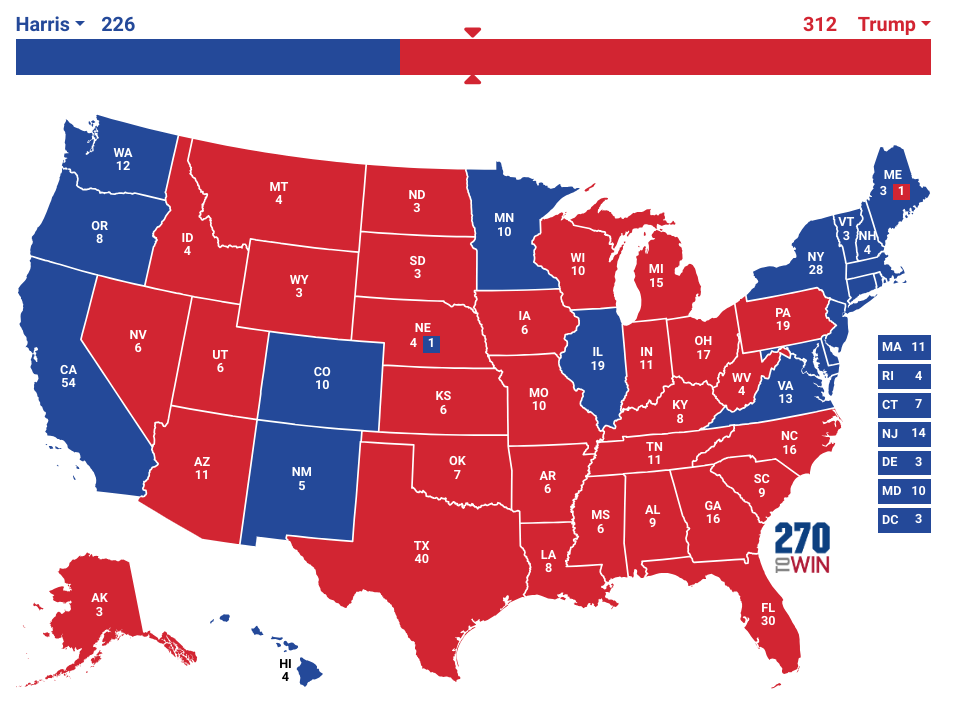Jefferson has a few classes which focus on politics, including Law and Society, Advanced Placement (AP) United States Government and Politics and AP United States History. One of the courses that are focusing on this year’s presidential election is AP Government.
“Campaigns and elections are a core element of the curriculum,” AP Government and Law and Society teacher Monte Bourjaily said. “We are staying true to the curriculum by studying elections. We have an opportunity to study it live and in the wild as opposed to simply reading about it in a textbook. This is an immersive experience called project-based learning.”
Researching the election
For this year’s presidential election, students in AP Government classes are doing a project. Teachers took different approaches to how students complete the project. Students will choose a state they’re interested in and will examine its electoral college, as well as research the Senate races and the House of Representatives.
“Every year [AP Government] does an election project and it’s robust this year since it’s a presidential, House, Senate and governor election year,” AP U.S. History and AP Government teacher Ashley Craft said. “We’re doing a project with those elements and students are researching the electoral college states they’re interested in. Last year we did a project more about local [Virginia] elections.”
In their project, Students made predictions about which political party will win the electoral vote in each state, and then who will win the overall presidential election.
“[Students] predicted who would win each of the seven swing states in the 2024 election, in addition to the state of Ohio, based on one regulatory change to election law that happened within that state in the past 4 years. They predicted who they thought would win
the electoral college votes for the state assigned to them,” AP Government and African American History teacher Jenifer Maglicic said.
Students Voting
Most seniors are eligible to vote or to register to vote for this year’s presidential election.
“If [seniors] are eligible to vote, we’ve tried to help them register to vote, we brought in the League of Women Voters to help with voter registration,” Bourjaily said. “I’ve encouraged students who are eligible to vote in the election to do so, and then students who aren’t, either to go with their parents to the polls just to see what the experience was like, or to volunteer as a poll worker, but it’s not a requirement,” Craft said.
Bourjaily emphasized the importance of making informed decisions in elections; he wants seniors to be able to evaluate candidates based on how candidates are approaching issues.
“I want [seniors] to learn how elections work and the importance of popular citizen participation,” Bourjaily said. “Democracy is a participatory sport. It doesn’t work if we don’t engage, so I want [seniors] to learn how to evaluate candidates, understand issues and see how candidates approach the issues differently.”


